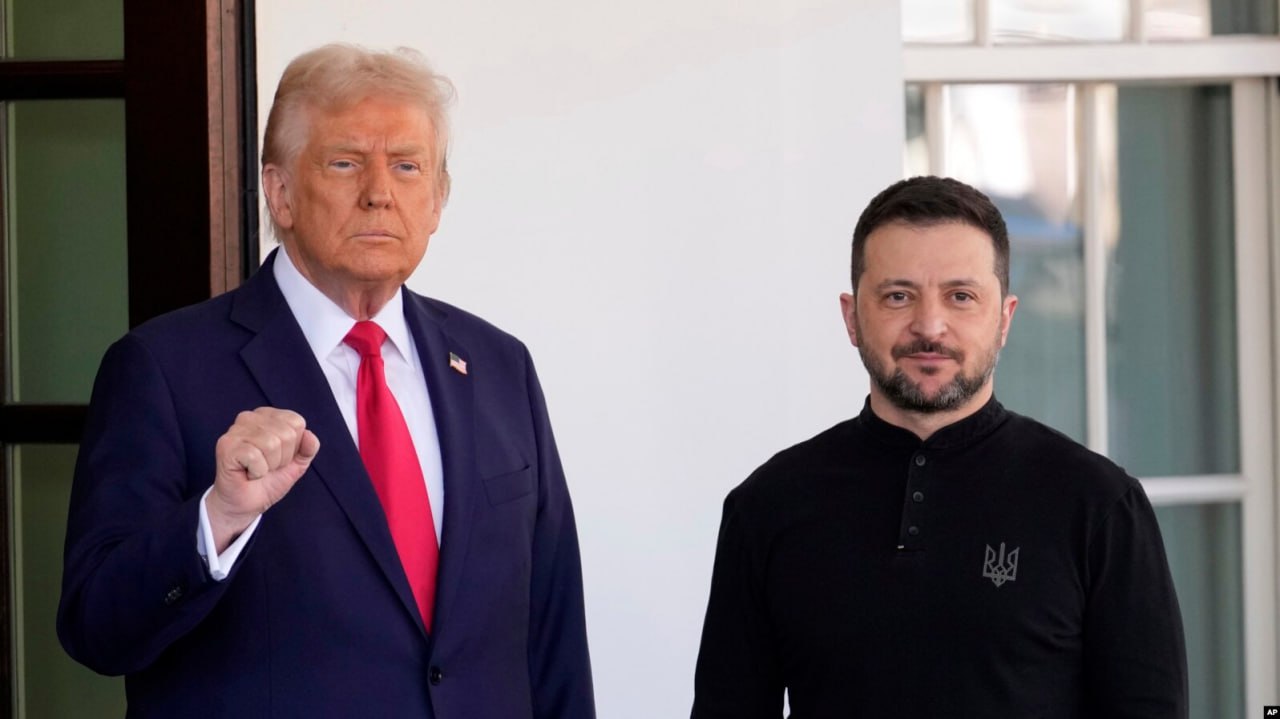There will be no conversation between Trump and Zelensky
17 June 09:39
US President Donald Trump has left the Group of Seven summit in Canada early due to the escalating situation in the Middle East. This was stated by the White House, "Komersant Ukrainian" reports citing Reuters.
The decision disrupted Trump’s meeting with Ukrainian President Volodymyr Zelenskyy scheduled for Tuesday.
Press secretary Caroline Leavitt said on social media site X that the president would leave the summit “after dinner with the heads of state” because of events in the Middle East. According to French President Emmanuel Macron, Trump proposed a ceasefire plan between Israel and Iran.
Meeting with Zelensky is canceled
Trump’s absence on the final day of the summit means that the expected meeting with Zelenskyy will not take place. The Ukrainian side planned to use this opportunity to negotiate further support in the war with Russia.
The Ukrainian president said he wanted to talk about buying American weapons. However, these plans have now been thwarted.
A spokesperson for the Ukrainian embassy in Canada confirmed that Zelenskyy still plans to arrive in Canada, despite the absence of the American leader. This calls into question the effectiveness of his visit.
Читайте нас у Telegram: головні новини коротко
Trump has traditionally supported Putin
During the summit, Trump made yet another controversial statement about Russia, saying that Moscow’s expulsion from the G8 in 2014 after the annexation of Crimea was a “big mistake.” He suggested that Putin would not have invaded Ukraine in 2022 if he had remained in the group.
Trump’s position caused concern among European partners, who hoped to convince him to support tougher sanctions against Moscow. Instead, the American president once again demonstrated his loyalty to the Russian leader.
A common position
Canada has abandoned attempts to adopt a comprehensive communiqué to avoid a repeat of the 2018 situation, when Trump withdrew American support for the final document after leaving office. None of the prepared documents has yet received US approval.
However, the G7 leaders did agree on a joint statement on de-escalation of the conflict, though not the Russian-Ukrainian conflict, but between Israel and Iran. The document calls for “a broader de-escalation of hostility in the Middle East, including a ceasefire in Gaza.”
The summit also discussed trade issues. Trump and British Prime Minister Keir Starmer announced the completion of a trade deal that will reduce US tariffs for Britain. Similar negotiations with Canada are ongoing.
Читайте нас у Telegram: головні новини коротко
What is being discussed at the G7 summit
The summit is taking place on June 16-17 in the resort town of Kenanaskis (Alberta), with the participation of the leaders of the United States, Canada, France, Germany, Italy, Japan, the United Kingdom, representatives of the European Union, and invited countries (Ukraine, Mexico, India, Australia, etc.).
The conflict between Israel and Iran
Due to the recent escalation of shelling, this topic is at the top of the agenda. German Chancellor Friedrich Merz called for unity and peacekeeping pressure, including preventing Iran’s nuclear development and granting Israel the right to self-defense.
Russian-Ukrainian war and sanctions against Russia
A new package of sanctions is expected to be approved: The EC proposes the 18th package, while the US and Canada coordinate their actions.
“We must increase the pressure on Russia to ensure a genuine ceasefire, bring Russia to the negotiating table and end this war. Sanctions are crucial to this. Last week we proposed a package of 18 sanctions. I will invite all G7 partners to join us in this effort,”
– said European Commission President von der Leyen at a press conference before the talks.
US tariffs and trade policy
Tariffs on steel, aluminum, and auto products imposed by the United States have caused tensions. Canada and Japan insist on easing the restrictions, while the US is promoting a “fair/reverse” trade policy.
Energy, climate and digital transformation
Under Canada’s presidency, the “digital climate partnership” is being discussed, including investments in clean technologies, energy stability, and cybersecurity.









